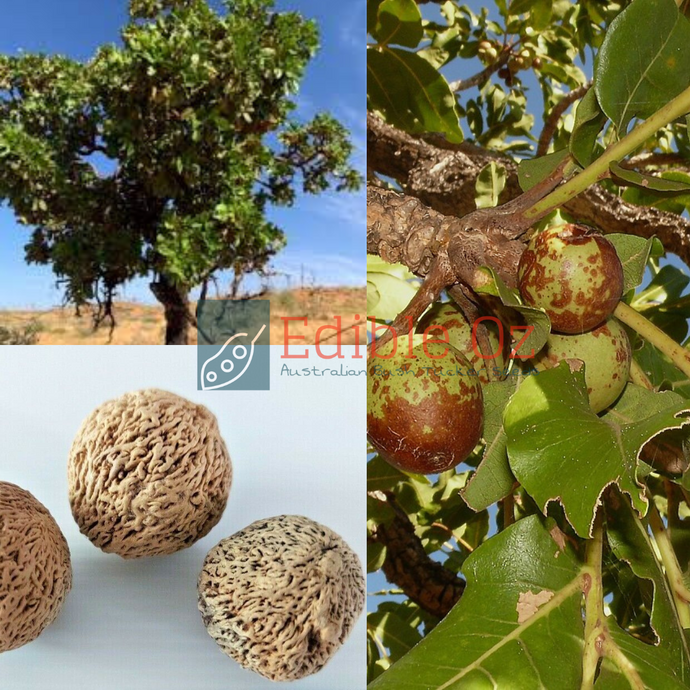
Desert Walnut / Broad-Leaved Emu Apple - Owenia reticulata (Turtujarti) seeds
Regular price
$7.20
Sale
or make 4 interest-free payments of
$1.80 fortnightly with
 More info
More info
Desert Walnut (Owenia reticulata)
A hardy and iconic Australian native tree, valued for its edible nuts, sap, and traditional medicinal uses.
Quick Facts
- Height & Spread: Grows between 4–14 meters, varying in size based on habitat.
- Appearance: Erect, rounded tree with dull green leaves and thick, cork-like outer bark.
- Habitat: Prefers stony flatlands and seasonally moist spinifex grasslands, often sharing its range with Desert Oak.
- Cultural Significance: Known as “Ngarlka” (nut) and “Turtujarti” (tree) by Indigenous communities.
Why Grow Desert Walnut?
This resilient tree provides food, medicinal resources, and ecological benefits, making it a valuable addition to arid and native gardens. Its cultural and historical significance adds a unique dimension to its appeal.
Bush Food Note
The Desert Walnut is harvested for its edible seeds and sap:
-
Seeds:
- Roasted for consumption; a traditional and nutritious food source.
-
Sap ('Marnta'):
- A golden syrup-like liquid, sweet at first with a salty flavor upon crystallization.
Bush Medicine Note
Indigenous communities utilized the tree for its medicinal properties:
-
Leaves and Stems:
- Heated, crushed, and soaked in water to create a liquid for poultices.
-
Seeds:
- Roasted and extracted to produce a balm for external sores.
Disclaimer: Information about traditional bush medicine is provided for educational purposes only. Always consult a healthcare professional before use
How to Grow
-
Sowing Instructions:
- Pre-soak seeds in water to soften the seed coat before planting.
- Use a well-drained soil mix suitable for arid or semi-arid conditions.
-
Position:
- Plant in full sun to part shade for optimal growth.
- Ideal for arid and semi-arid gardens with stony or sandy soils.
-
Care Tips:
- Water regularly during establishment; drought-tolerant once mature.
- Minimal maintenance required; prune lightly to maintain shape if desired.
Uses in Your Garden
- Bush Food Garden: Produces edible nuts and sap with traditional culinary uses.
- Ornamental Value: Erect, rounded growth habit and unique bark add visual interest.
- Native Landscaping: Thrives in arid and semi-arid conditions; supports biodiversity.
- Cultural Significance: A living link to traditional Indigenous knowledge and practices.
Germination Tips
- Pre-treatment: Soak seeds in water to improve germination rates.
- Planting Depth: Sow seeds just below the soil surface.
- Position: Keep in a sunny spot with consistently moist but not waterlogged soil during germination.
Order Now
Add the iconic and resilient Desert Walnut to your garden. With its edible seeds, sweet sap, and traditional medicinal uses, this versatile tree is a meaningful and practical addition to any arid or native landscape.
Order your Desert Walnut seeds today and grow a tree that connects you to the heart of Australia’s cultural and ecological heritage!
